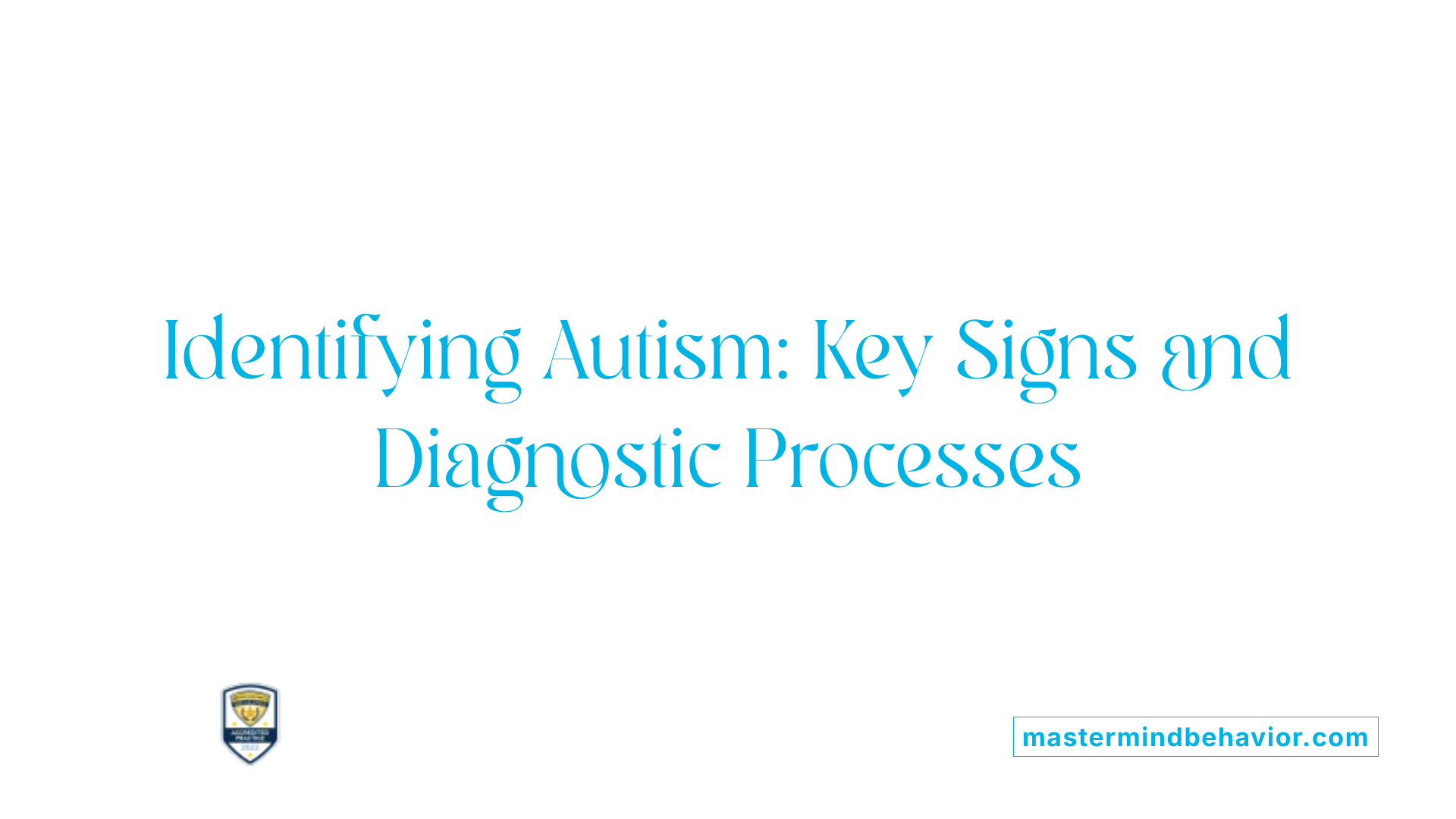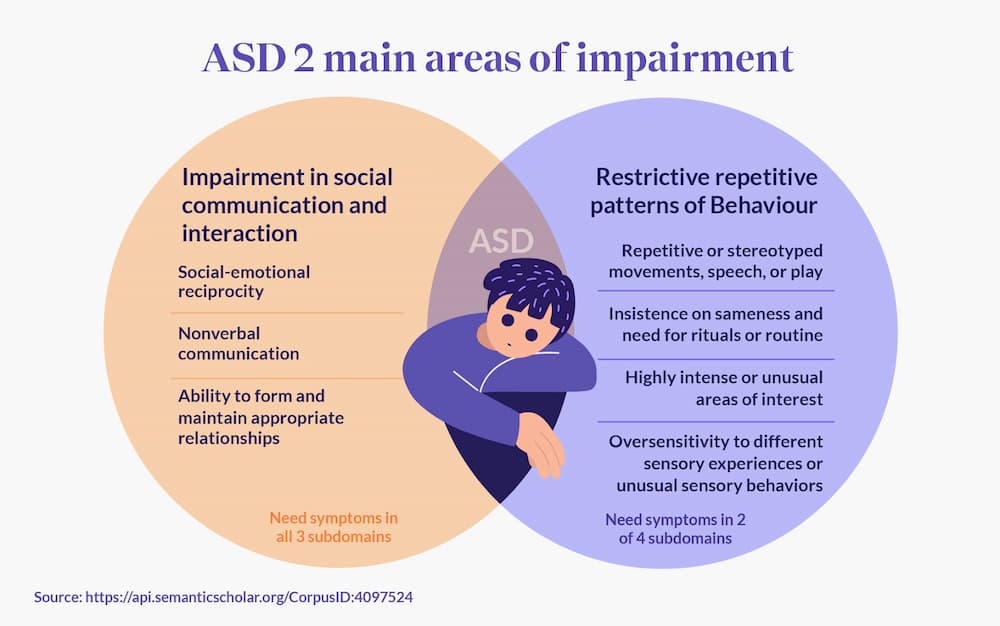Are social difficulties a sign to talk to an local Aba Therapist?
Are social difficulties a sign to talk to an local Aba Therapist?
Blog Article
Recognizing the Impact of Behavioral Autism on Life and Social Communications
You might not recognize how deeply behavioral autism affects day-to-day life and social interactions. People on the range frequently browse a globe filled with interaction difficulties and sensory overload. These obstacles can lead to aggravation and isolation, influencing their partnerships and overall wellness.
Defining Behavior Autism and Its Attributes
Behavioral autism, frequently described as autism spectrum problem (ASD), includes a series of conditions characterized by obstacles in social communication, interaction, and repetitive actions. You may observe that individuals with ASD often struggle to analyze social cues, which can result in misunderstandings in conversations. They may find it difficult to establish eye call or engage in tiny talk, making social circumstances really feel frustrating.
Interaction troubles can show up in numerous methods, from postponed speech growth to a choice for making use of less words. By acknowledging these attributes, you can cultivate an environment that advertises approval and urges efficient interaction, aiding individuals with autism prosper in their day-to-day communications.
The Range of Autism: Understanding Variability in Habits
Autism range problem (ASD) isn't a one-size-fits-all medical diagnosis; it differs extensively amongst individuals. You may see that some individuals with ASD show light symptoms, while others might encounter much more substantial obstacles. This irregularity can show up in actions, passions, and sensory level of sensitivities. You might come across people who are very verbal and involve conveniently in conversations, while others might prefer singular activities or communicate non-verbally.
Moreover, the way individuals with ASD react to sensory input can differ considerably; some could be bewildered by brilliant lights or loud noises, whereas others flourish in promoting settings. The spectrum likewise consists of distinctions in social communications; some individuals might struggle to analyze social hints, while others browse social setups with family member convenience. Recognizing this variability is necessary, as it assists you appreciate everyone's one-of-a-kind experience and tailor assistance to their details requirements, cultivating an extra inclusive atmosphere for everyone.
Interaction Challenges Faced by People With Autism
When you communicate with individuals on the autism range, you might observe their one-of-a-kind communication obstacles. They usually face difficulties with both nonverbal and verbal signs, which can impact their social communications. Understanding these barriers is important for promoting far better connections and assistance.

Verbal Communication Difficulties
Several people on the autism spectrum experience spoken communication difficulties that can considerably affect their daily communications. You may find it testing to reveal your thoughts, sensations, or requires clearly. This can result in irritation for both you and those around you, as misunderstandings occur. You may deal with starting discussions, preserving a subject, or comprehending subtleties in speech. Typically, you could like utilizing simple language or repetitive phrases, which can restrict your capacity to take part in deeper discussions. Your volume, rate, or tone could not straighten with social assumptions, creating others to misunderstand your intentions. Acknowledging these difficulties can aid you and your support network develop approaches to enhance communication and promote much better connections with others in your every day life.
Nonverbal Interaction Obstacles
Spoken communication isn't the only obstacle people on the autism spectrum face; nonverbal communication obstacles can be simply as considerable. You may locate it difficult to interpret body language, faces, and eye call, which are crucial for efficient interaction. These challenges can result in misunderstandings or false impressions of social cues, making communications feel complex or overwhelming. You might struggle to share your very own emotions through nonverbal means, leaving others uncertain of your feelings or intents. This disconnect can produce sensations of seclusion and irritation. Identifying these obstacles is important for promoting understanding and compassion in your communications. By resolving nonverbal communication, you can find approaches to boost your social experiences and improve your total lifestyle.
Social Communication Influences
Social communications can often feel overwhelming because of the special interaction challenges dealt with by people with autism. You may struggle with interpreting social signs, making it difficult to comprehend sarcasm or body language. This can result in misconceptions or unpleasant moments in conversations. Additionally, initiating and keeping conversations may feel difficult, triggering anxiety in social scenarios. You may favor structured environments, making spontaneous communications awkward. It's additionally usual to experience difficulty in taking part in little talk, which can prevent developing brand-new friendships. Acknowledging these obstacles can aid you discover strategies to boost communication, such as practicing social skills in risk-free setups or utilizing aesthetic aids - Aba Therapist Near Me. Comprehending your demands allows you to browse social communications with greater confidence and simplicity.
Social Communication and Partnership Building in Autism
While building connections can be challenging for individuals with autism, comprehending their unique perspectives and interaction styles can promote purposeful links. You could notice that several people on the range like direct interaction and may battle with social cues or tiny talk. By being straightforward in your interactions, you can assist develop an environment where they feel comfy.
Engaging in shared rate of interests can likewise serve as a bridge to deeper connections. Whether it's a leisure activity, a preferred show, or a mutual interest, these usual threads can open up doors to friendship.
Life Regimen: Browsing Difficulties and Strategies
Navigating day-to-day life routines can be especially challenging for people with autism, specifically when unexpected adjustments take place. You could locate comfort in having an organized schedule, as it helps you expect what's next. It's typical to really feel overloaded or distressed when interruptions happen. To navigate these difficulties, think about applying visual schedules or lists. These devices can supply quality and confidence.
Developing a routine that includes sensory breaks can likewise be advantageous. You can intend short breaks throughout your day to recharge. It's vital to interact with those around you, letting them understand your needs and choices. This assists produce an understanding atmosphere.
Finally, method mindfulness techniques to manage stress and anxiousness. Basic breathing exercises or grounding techniques can make a considerable difference. By incorporating these approaches, you can boost your everyday regimen and lessen interruptions, making life feel much more convenient.
Staminas and Capacities of People on the Autism Range
Comprehending every day life regimens is just one aspect of the autism experience. Numerous people on the autism spectrum possess amazing staminas and abilities that establish them apart. You may locate that your attention to detail is remarkable, permitting you to master jobs that need precision and focus. Your capacity to believe outside package can lead to ingenious options in numerous scenarios.
Additionally, your memory skills usually beam, specifically in locations of rate of interest. Autism Spectrum Therapies. This propensity for keeping details can make you a useful source in fields like art, modern technology, or science. You might additionally show solid visual reasoning, enabling you to visualize intricate concepts and solve problems creatively
In addition, your unique perspective on the world can cultivate empathy and understanding in others, improving social communications. Welcoming these toughness not just improves your confidence however also aids others appreciate the varied skills you offer the table.
Developing Comprehensive Atmospheres for People With Autism
Creating inclusive settings for people with autism starts with making sensory-friendly rooms that accommodate their one-of-a-kind requirements. You can additionally foster opportunities for social communication, helping to build friendships and connections. By making these adjustments, you'll see here now add to an extra welcoming environment for every person.
Designing Sensory-Friendly Spaces
While developing sensory-friendly rooms, it's vital to mirror on the one-of-a-kind requirements of individuals with autism. Integrate peaceful zones where individuals can pull away and charge when bewildered. Include visual timetables or clear signs to aid individuals browse the area confidently.
Advertising Social Communication Opportunities
Designing sensory-friendly rooms not only addresses individual convenience but additionally establishes the stage for significant social interactions among people with autism. To advertise these interactions, develop inclusive environments that welcome participation. Arrange structured tasks, like art classes or group video games, that motivate cooperation without frustrating sensory input. Usage aesthetic aids and clear interaction to help every person engage pleasantly. Encourage peer mentoring, coupling individuals with autism with helpful peers who can guide them with social situations. In addition, consider hosting routine neighborhood occasions that celebrate neurodiversity, promoting approval and understanding amongst all participants. By carrying out these techniques, you can boost social chances, helping individuals with autism build friendships and reinforce their social skills in a risk-free, inviting environment.

Regularly Asked Questions
How Can Pals Support Somebody With Behavioral Autism?
You can support a friend with behavioral blog here autism by holding your horses, paying attention actively, and respecting their limits. Participate in activities they delight in, connect honestly, and produce a comfy setting where they really feel valued and understood.
What Resources Are Available for Parents of Kid With Autism?
You can explore different resources for parents of children with autism, including support groups, educational websites, and regional neighborhood solutions. Getting in touch with other parents can also provide important insights and shared Web Site experiences to help navigate obstacles.
Can Behavioral Autism Modification Gradually?

Yes, behavioral autism can alter gradually. You may discover shifts in communication, social skills, and behavior as your child expands. Early intervention and assistance often play important roles in these developmental changes.
Exactly How Do Sensory Sensitivities Affect Day-to-day Live?
Sensory level of sensitivities can make day-to-day experiences overwhelming. You could have problem with loud sounds or brilliant lights, leading to tension or avoidance. Locating atmospheres that fit your needs can considerably improve your convenience and general day-to-day live.
What Are Typical Misconceptions Regarding Behavioral Autism?
You might assume behavioral autism only affects interaction abilities, but it's more facility. Many presume individuals do not have empathy or intelligence, which isn't true. Recognizing these misconceptions assists foster acceptance and assistance for those on the range.
Behavioral autism, commonly referred to as autism range condition (ASD), encompasses a range of problems identified by obstacles in social communication, communication, and repeated behaviors.Social communications can typically feel frustrating due to the unique interaction difficulties encountered by people with autism.Designing sensory-friendly rooms not just addresses specific comfort however also establishes the phase for meaningful social communications among people with autism. Encourage peer mentoring, matching individuals with autism with supportive peers who can assist them with social scenarios. By executing these methods, you can enhance social opportunities, assisting individuals with autism build friendships and reinforce their social skills in a safe, inviting environment.
Report this page